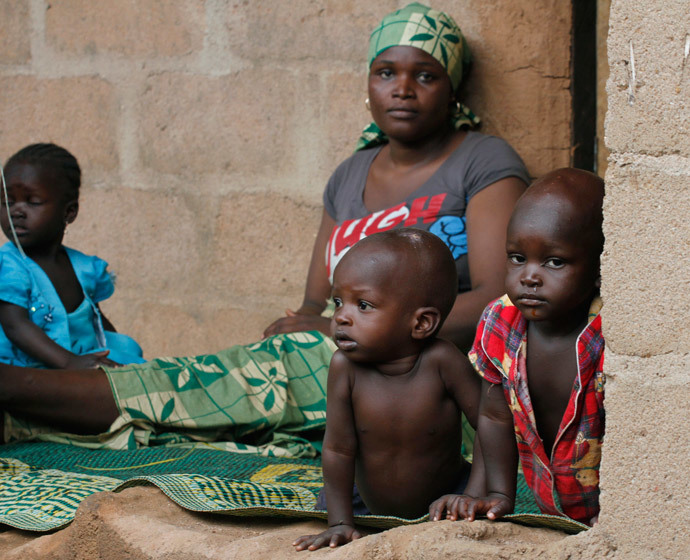Global population may reach 11 billion by 2100

The world’s population may reach 11 billion by 2100 - 2 billion more than previously anticipated - largely due to high birth rates on the African continent, according to a UN-led study. Can natural resources keep pace?
Researchers have long held the view that the number of people on
the planet would grow to just 9 billion by 2100, and then
stabilize or even decline. The latest analysis, however,
indicates global population will increase by 4 billion by
century’s end, according to a report published in Science journal.
"The consensus over the past 20 years or so was that world
population, which is currently around 7 billion, would go up to 9
billion and level off, or probably decline," said co-author
Adrian Raftery, professor of statistics and of sociology at the
University of Washington.
"We found there's a 70 percent probability the world
population will not stabilize this century," he added.
Much of the reason for the predicted population growth comes from
Africa, where the population is expected to quadruple from 1
billion today to 4 billion by 2100.
"There is an 80 percent chance that the population in Africa
at the end of the century will be between 3.5 and 5.1 billion
people," said the study.
Global population is currently increasing at a rate of about 1.14
percent annually, while the average population change is
estimated at about 80 million more people per year. The global
population has doubled in 40 years from 1959 (3 billion) to 1999
(6 billion), according to World Population Clock.
It is now estimated that it will take another 43 years to
increase by another 50 percent, reaching 9 billion by 2042.
Additionally, by 2030 India's population is expected to surpass
China's, to become the most populous nation in the world.
Meanwhile, Nigeria's population is predicted to surpass America's
population by around mid-century to become the third-most
populous country, reaching about 1 billion people in 2100.

The analysis, formulated by UN and researchers at the University of Washington, Seattle, is said to provide a more accurate outlook than other studies in that it incorporates Bayesian statistics, which takes into account many different factors to arrive at a conclusion. It also uses data from the most recent UN population data, released in July.
"Earlier projections were strictly based on scenarios, so there was no uncertainty," said UN demographer Patrick Gerland.
"This work provides a more statistically driven assessment that allows us to quantify the predictions, and offer a confidence interval that could be useful in planning."
Global demand for a growing planet
Predictions of 4 billion more people on the planet by 2100 places
new emphasis on the issue of natural resources, many of which are
already dwindling.
Consider fresh water resources, for example. According to the
United Nations, water use has increased by more than twice the
rate of population growth in the last century. By 2025, an
estimated two-thirds of the world's population will live in
"water-stressed regions" as a result of overuse, growth
and climate change.
Another crucial natural resource is oil, which keeps the gears of
the global economy lubricated. Although experts are divided as to
how much oil reserves are still available, even the most
optimistic predictions suggest that a decline will begin around
2020.
Writing in the prestigious scientific journal, Philosophical
Transactions of the Royal Society (‘The Future of Oil
Supply’, 2013), experts predicted “a sustained decline
in global conventional production appears probable before 2030
and there is significant risk of this beginning before
2020.”
The growing demands of a growing global population is expected to
place enormous pressure on various parts of the world, including
in Asia, which is predicted to increase from its current 4.4
billion people to 5 billion in 2050, before it begins to
stabilize.
Meanwhile, a more crowded planet will intensify problems such as
infectious diseases and poverty. Africa, which is expected to
experience the highest population growth by 2100, is presently in
the grips of the deadly Ebola virus, which has already killed
nearly 2,500 people.
However, such deadly diseases, including HIV, have largely been
brought under control by the scientific community, and do not
seem capable of offsetting high global birth rates.
So humans are left with a situation in which medical science has
given them extended life spans and less likelihood of dying
prematurely from deadly diseases, which, at the same time, places
pressure on the planet and its finite store of resources.
How long such a contradiction can continue on an increasingly
crowded planet remains the big question for scientists.
"Population, which had sort of fallen off the world's agenda,
remains a very important issue," said Raftery.














